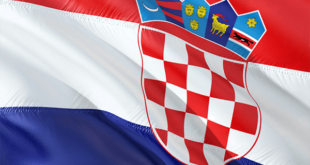Are you an international student aspiring to pursue higher education in Croatia? The process of university application in a foreign country can sometimes be daunting. But worry not! This comprehensive guide aims to provide you with all the essential information you need to successfully apply to universities in Croatia.
Table of Contents
Overview of the Higher Education System in Croatia
Before delving into the university admissions and application process in Croatia, it’s worth exploring the country’s higher education system.
When it comes to higher education, prospective students in Croatia can choose between a binary system: university studies or vocational higher education. Both systems follow the Bologna process and use the ECTS credit system.
- University studies: include academic programs at universities, both public and private. These studies include the classic three cycles: undergraduate, graduate and postgraduate. In some cases, such as medical studies, the undergraduate and graduate cycles are combined into a 6-year program leading to a master’s degree.
- Professional studies, on the other hand aim for students needing the necessary skills for an immediate entry into the labor market. Professional education takes place at colleges, polytechnic but also at universities. It usually includes short-cycle professional studies as well as a 2-cycle professional undergraduate then graduate program.
Most universities and polytechnics in Croatia are public institutions. On the other hand, most colleges of applied sciences are private institutions.
Degree Programs and the Bologna Process
To fully align with other higher education systems in Europe and to ease up student transfer and mobility, Croatian institutions follow the Bologna Process.
As a result, to earn an undergraduate degree, either from a university or a professional institution, students must earn between 180 and 240 ECTS (European Credit Transfer System) in 3 or 4 years of studies.
To earn a graduate degree (master-level), students must collect between 60 and 120 degrees. And lastly, at postgraduate level, university students in Croatia can earn either a specialist postgraduate degree (Master 2) after 1 or 2 years of studies or a PhD after 3 years of study and research.
Grading System
The grading system in Croatia includes 5 grades with numerical equivalents, from the highest to the lowest grades. Therefore, depending on your grade, the appreciation can be:
- Excellent (izvrstan) if you get a score of 5
- Very good (vrlo dobar) if you get 4
- Good (dobar) if your grade is 3
- Sufficient (dovoljan) if it’s 2. This is the minimum pass grade
- Fail (nedovoljan) if it’s 1. This score requires students to retake their exams or resubmit their work.
Admissions Requirements
Entry requirements at Croatian universities differ depending on the status of the applicant, as well as the program they are enrolling in. Moreover, it’s worth to notice that admission to private institutions in Croatia are done directly through the institution’s website for international students.
Types of International Students
Croatia welcomes international students under various categories, including degree-seeking students, exchange students, and guest students.
Degree-seeking students encompass those pursuing undergraduate, graduate, and postgraduate degrees. Exchange students are those participating in programs like Erasmus+, CEEPUS, or bilateral agreements. Guest students, on the other hand, enroll as free-movers or for short-term study.
It’s important to note that students from EU member states may apply under the same conditions as Croatian citizens. Third-country nationals, however, may encounter different enrollment requirements.
Admission Requirements
To get admission to a higher education institution in Croatia, there are general and insitution-specific requirements that applicants should be mindful of. Moreover, university application to university programs in Croatian take place on a central online system.
For programs in English, on the other hand, students need to provide a minimum of IELTS 6.0 English proficiency level.
When it comes to general requirements, it’s generally up to the institutions to determine the enrollment criteria. These factors are the basis for classification and selection of candidates, and usually include:
- Educational qualifications (what type of education the candidate have previously completed)
- Achievements from previous education (grades as well as degrees). This can be a high-school leaving diploma / certificate for undergraduate applicants and a bachelor or an undergraduate degree for a candidate to a graduate / postgraduate program. For such degrees, foreign candidates need to get their recognition by the Croatian competent entity.
- Special knowledge or skills if the institution requires it
- Proof of proficiency in the language of instruction of the program (Croatian or English with at least a B2 level)
- Medical documentation
Specific Admission Conditions
Application for medicine or dentistry programs at a university in Croatia requires the applicants to sit an entrance exam. The first exam usually takes place in March or April for students applying for the winter semester (in October). The second exam for the summer semester (if there are still places available) take place in July.
Veterinary studies, on the other hand, do not require any entrance exam. Candidates are evaluated solely based on their current qualifications and work experience. They, therefore, must make sure to provide all the necessary documents in relation to their previous studies.
University Application Procedure in Croatia
The application process for higher education institutions in Croatia typically involves the following steps:
Step 1: Determine Eligibility and Costs
Before applying, it’s important to determine whether you meet the eligibility criteria for your desired program and to understand the costs involved, such as tuition, deposits, health insurance, and housing. For information on eligibility and costs, contact the international office of your institution of choice.
Read here our tips on choosing the right university abroad.
Step 2: Online Registration
Once you’ve confirmed your eligibility and are ready to apply, you’ll need to register and submit your application through the Central Application Office’s online platform. During registration, be sure to select your desired study program.
Step 3: Submit Application Documents
Prepare your application documents, which may include:
- High school diploma or equivalent
- Transcripts of previous education
- Language proficiency test scores (if applicable)
- Any additional documents requested by the institution
Submit these original documents to the Central Application Office by the end of June. Be sure to follow the guidelines provided by the institution regarding document submission, including any requirements for certified translations or notarization.
Step 4: Await Application Results
After submitting your application, you’ll need to wait for the Central Admissions Office to announce the rankings according to their calendar. This is the case for both undergraduate and graduate applications. If your application is successful and you’re ranked, you can move on to the next step.
Step 5: Enroll in the Program
Once you’ve been accepted and placed on the ranking list, you’ll need to follow the enrollment procedures outlined by your institution and program of choice. This may include submitting additional documents, paying tuition fees, and attending orientation sessions. Be sure to carefully review and adhere to the enrollment deadlines provided by the institution to secure your place in the program.
Moreover, upon acceptance, applicants receive acceptance documents along with details about the start date of their study program. Students will also receive their health insurance information, student ID card, and housing information if they have applied for university housing.
University Application Deadline in Croatia
In order for your application to be considered for admission, it’s important to meet the deadlines.
That’s why it’s important to familiarize yourself with the important dates and deadlines set by the Central Admissions Office and the institutions of your choice. Also, be sure to submit all required documents.
Generally, the online platform of the Central Application Office is open between March 1 and May 15 for the next academic year starting in October. For the semester starting in April of the following year, the platform is open from September 1 to November 15.
Finally, the academic calendar in Croatia includes a first, winter semester and a second, summer semester. For international students, it’s better to apply for the winter semester, as there are usually not many places available for the summer semester.
Additional Information
In addition to the steps outlined above, there are a few additional considerations to keep in mind:
- The Central Applications Office (CAO) serves as the national information center for applications to study programs at HEI in Croatia. They provide valuable resources and support to applicants throughout the application process.
- Contact Information: For inquiries regarding application documents, eligibility criteria, or any other concerns, you can reach out to the Central Application Office through their website. You can also contact them directly via email or phone.
Recognition of Foreign Degrees in Croatia
In Croatia, for your university application, it’s crucial to have your foreign qualifications recognized. Whether you’re aiming for higher education or seeking employment, this recognition is a must.
If you completed your secondary education abroad, you’ll need to get it recognized by the Education and Teacher Training Agency for general or art high school qualifications. For vocational high school qualifications, you need to contact the Agency for Vocational Education and Training and Adult Education.
Similarly, if you’re applying for graduate or postgraduate studies in Croatia after earning your undergraduate degrees abroad, you absolutely need to go through the recognition process. This is handled either by Croatian higher education institutions or the Croatian ENIC-NARIC Office.
Remember, recognition of prior education qualifications is a vital part of the enrollment process. Make sure therefore to complete this step alongside your application to a Croatian university.
Conclusion
By following the steps outlined in this guide and staying informed about the application process and requirements, you will have everything in hand for your university application in Croatia. Our final tip is to start well in advance, as gathering all the necessary documents will take time. And sticking to the application deadlines will certainly maximize your chances of success. Good luck with your application!
This post is also available in ar.




 Aljawaz Your guide to study abroad
Aljawaz Your guide to study abroad






